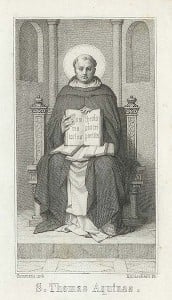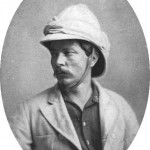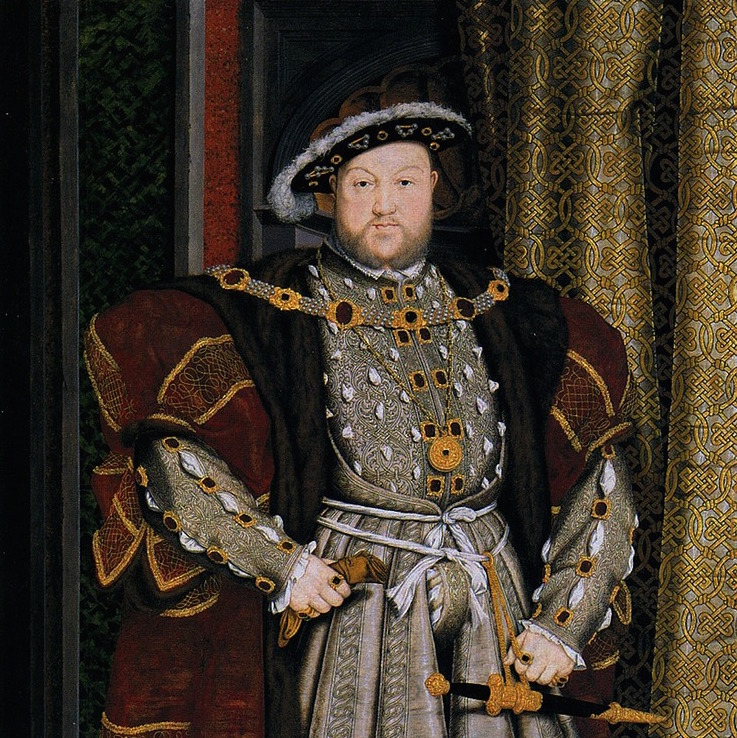 Last week a reader took issue with Thomas’ use of the term “nobler beings” as being a subjective judgement. Here is the passage in question:
Last week a reader took issue with Thomas’ use of the term “nobler beings” as being a subjective judgement. Here is the passage in question:
Another consideration: among the various perfections of things, the chief are intellect and will. A sign of this is that they are found in the nobler beings.
(Emphasis mine.) The word “noble” is a fraught one in American usage. We either associate it with altruistic self-sacrifice (as in “a noble act”) or with the whole European social scheme we left behind after the American Revolution. And when we consider English nobility with our notion of “noble” as a superlative we naturally find them wanting.
In Thomas’ day, though, the term would have been seen in terms of hierarchy. Society was highly stratified, and there was little social mobility; you belonged to the class you were born into. The classes were ranked from less noble to more noble, and everyone pretty much knew where everyone else belonged. (This is why it was such a scandal for Thomas to join the Dominicans. They were beggars, and Thomas’ family were nobles, and closely related to the Emperor.) For someone of Thomas’ day to describe a man as “noble” was primarily to indicate his objective position in society, not his character.
Thus, when Thomas refers to the “nobler beings”, he is referring to the beings who are highest in some ranking; for Thomas, that ranking would be the extent to which the creature’s essence expressed the perfections of God. In his day, this ranking was seen as a strict ordering of all beings from greater to lesser; you might have heard it by the name of the Great Chain of Being.
This strict ordering is partially objective, partially subjective, and partially somewhat confused.
It is subjective in that we do not know just how different creatures express the perfections of God. Thomas famously observed that we cannot even exhaust the essence of a simple housefly; how then should we compare a housefly with a mosquito and judge that one is above the other?
It is confused in that God’s perfections are manifold and infinite. Cheetahs can run quite fast, but drown in water. Tuna can live in underwater indefinitely, but they cannot run at all. They can’t even crawl. Cheetahs excel tuna in one way, and tuna excel cheetahs in another. Which one would you put first? Each resembles God in its own way.
Nevertheless, there are certain broad categories, of which we can say that members of this category excel members of that category.
Plants, for example, are nobler than stones. Stones are inert (and so, one might say, they reflect God’s unchangingness). But stones do not act of themselves, ever, except insofar as they attract other bodies by force of gravity. If a stone ever moves or changes, it is because it was acted upon by something else in a mechanical fashion.
Plants have all of the capabilities of stones. They take up space; they have mass, so they exert the force of gravity on other beings; they persist over time. But they also act of themselves: they grow, and they take in nourishment. They are, in fact, alive, as stones are not. They exhibit the perfections of stones, but additional perfections as well.
Animals are nobler than plants. Plants do not move except by growing, or as moved by external forces such as wind and water. Some seed pods exhibit a kind of movement; dandelion seeds fly, and some seed pods crawl by expanding and contract with levels of moisture; but they do so mechanically, taking advantage of forces that act upon them. Plants are both acting and acted upon.
Animals have all of the capabilities of plants. They take up space and persist over time like stones; they take in nourishment and grow like plants; but they also sense their surroundings in a manner that no plant does and move from place to place seeking food, warmth, sex, and so forth. They are more acting and less acted upon than plants.
Human beings have all of the capabilities of animals; in fact, they are animals, as everyone knows. The Tree of Porphyry lays out being like this:
First you have bodies that take up space. Bodies are living or non-living.
Living bodies are of two kinds: those that do not move by themselves (plants) and those that do (animals). Animals are so called because they are animate.
Animals are of two kinds: non-rational and rational. Cheetahs are non-rational; human beings are rational. Rational animals have all of the capabilities of animals, taking up space, persisting, growing, eating, perceiving, and moving; but they can also reason, and judge the truth of propositions, and understand (at some level) the essence of other beings in a manner that cheetahs don’t.
Porphyry took this scheme one farther; he divided human beings into two categories, mortal and immortal; the immortals were the gods of Greece and Roman. But we don’t need to go there. Another side note: if there were intelligent life on Mars, Thomas would class them as rational animals, and hence human beings. We would then need to distinguish between Earth humans and Mars humans. But I digress.
The point is, each category of being adds something to the previous. Thus, there is an objective sense in which human beings are nobler than potatoes: we truly are higher in the hierarchy.
I’ve noted that the Great Chain of Being is somewhat subjective, because we don’t know enough to truly rank anything, and somewhat confused, because two beings might excel each other in different ways. But it is also objective in that this knowledge exists perfectly in the mind of God. We might not be able to objectively rank all beings, but God can, even if it’s a hierarchy of sorts rather than a strict chain.











